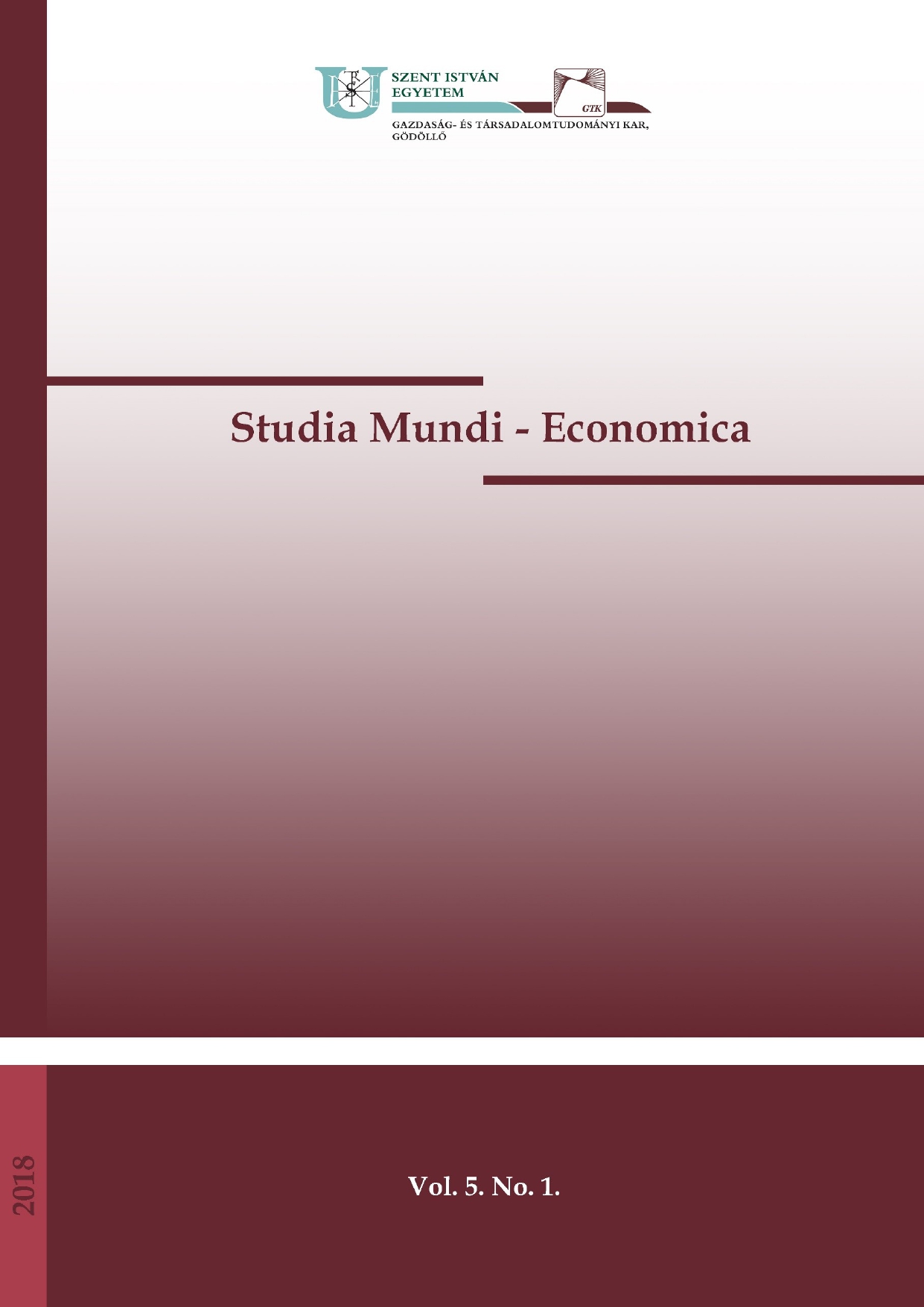Food safety requirements in case of short food supply chain
DOI:
https://doi.org/10.18531/Studia.Mundi.2018.05.01.79-86Schlagwörter:
local food, Short Food Supply Chain, food-safety requirements, consumer preferences and trustAbstract
It can be stated according to the relevant literature that the health related characteristics of the food products and the ethical values relating to the sustainable development and consumption gains on a growing importance among the preferences of the consumers. The article introduce the different possible types of Short Food Supply Chains, the various food safety requirements relating to them and the opinion of some relevant conventional and organic farmers about the prevailing of rules. The aim of this article is to give a picture of the evolution of the food safety regulations, than a broad review of the different SFSC types, and to find the differences between the farmers’ group. It investigates the most important characteristics of direct sale in the light of the recent food safety requirements among the surveyed farmers. The surveys were made as a preliminary research for a more comprehensive study.
Literaturhinweise
Augère-Granier, M-L. (2016): Short food supply chains and local food systems in the EU. European Parliamentary Research Service. Briefing
Balázs B. (2012) Local Food System Development in Hungary. International Journal of Sociology of Agriculture and Food, 19:3, 403-421.
Balázs, B., Bertényi, G., Králl, A., Pintér, L., Strenchock, L. (2015)::PATHWAYS project Exploring transition pathways to sustainable, low carbon societies, January 2015.
Benedek Zs. - Balázs B. (2014) A rövid ellátási láncok szocioökonómiai hatásai (Socioeconomic impacts of short food supply chains), Külgazdaság 2014/5-6. •
Benedek, Zs. – Fertő, I.- Baráth, L. – Tóth, J. (2014): Differences of small-scale farmers and the related short agri-food value chains. An empirical evidence from Hungary Műhelytanulmányok, MTA, 2014
Cowell, J., S. Parkinson, S. (2003): Agriculture, Ecosystems and Environment 94 (2003) 221–236p.
Hámori, J.(2013): Az etnocentrizmus érvényesülése a fogyasztói döntéseknél az élelmiszerek piacán, PhD Értekezés, Gödöllő, 2013
Herman, L.- Heyndrickx, M. - De Reu1, K. - Van Coillie, E. – Uyttendaele, M. (2012): Microbiological safety and quality aspects in relation to the short food supply chain. Food Safety of Short Food Supply Chain, Symposium SciCom 2012.
Jakopánecz, E. (2015): Élelmiszer-vásárlási tudatosság és fogyasztói ellenállásra való hajlandóság a magyar felnőtt lakosság körében. Dr. Törőcsik Marketing Inspiráció - Fogyasztói Magatartás Kutató Intézet. WHO Egészség Világnap Élelmiszerbiztonság konferencia, 2015. április 7.
Kneafsey, M. – Venn, L. – Schmutz, U. – Balázs, B. – Trenchard, L. – Eyden – Wood, T. – Bos, E. – Sutton, G. – Blackett, M. (2013): Short Food Supply Chains and Local Food Systems in the EU. A State of Play of their Socio-Economic Characteristics. JRC, 2013
Mácsai, É.- Kujáni, K.- Juhász, A. szerk. – Hamza, E.- Györe, D. (2012): A közvetlen értékesítés szerepe és lehetőségei a hazai élelmiszerek piacrajutásában. Élet a modern kiskereskedelmi csatornákon kívül? AKI, 2012
Marsden, T. - Banks, J. - and Bristow, G. (2000) Food Supply Chain Approaches: Exploring their Role in Rural Development. Sociologia Ruralis 40 (4), 424-438.
Papadopoulos, N.- Butt, I. (2006): Place image and place branding: what the data tell us, Vezetéstudomány, 2006. 7-8 szám, 73-87 p.
Petrás, E. (2005): A lokalizáció és lokális identitás a globalizáció korában, Szociológiai Szemle 2005/4, 85-98 p.
Renting, H. - Marsden, T. - Banks, J. (2003) Understanding Alternative Food Networks: Exploring the Role of Short Food Supply Chains in Rural Development. Environment and Planning A 35, 393-411. 16. Szilágyi T., Boldizsár G.: (2016) A biztonságos vidék, mint az állam létfeltétele PRO SCIENTIA RURALIS 1:(4) pp. 24-34.
Ter Kuile, B. (2012): Food safety problems specific to the short chain selected case studies from the Netherlands. Food Safety of Short Food Supply Chain, Symposium SciCom 2012.
Tóth, T.-Káposzta, J. (2014): Tervezési módszerek és eljárások a vidékfejlesztésben. Elmélet. SZIE Kiadó, Gödöllő, 163 p.
Downloads
Veröffentlicht
Ausgabe
Rubrik
Lizenz
Copyright (c) 2018 Kinga Nagy – Pércsi

Dieses Werk steht unter der Lizenz Creative Commons Namensnennung - Nicht-kommerziell - Keine Bearbeitungen 4.0 International.
A folyóirat Open Access (Gold). Cikkeire a Creative Commons 4.0 standard licenc alábbi típusa vonatkozik: CC-BY-NC-ND-4.0. Ennek értelmében a mű szabadon másolható, terjeszthető, bemutatható és előadható, azonban nem használható fel kereskedelmi célokra (NC), továbbá nem módosítható és nem készíthető belőle átdolgozás, származékos mű (ND). A licenc alapján a szerző vagy a jogosult által meghatározott módon fel kell tüntetni a szerző nevét és a szerzői mű címét (BY).






